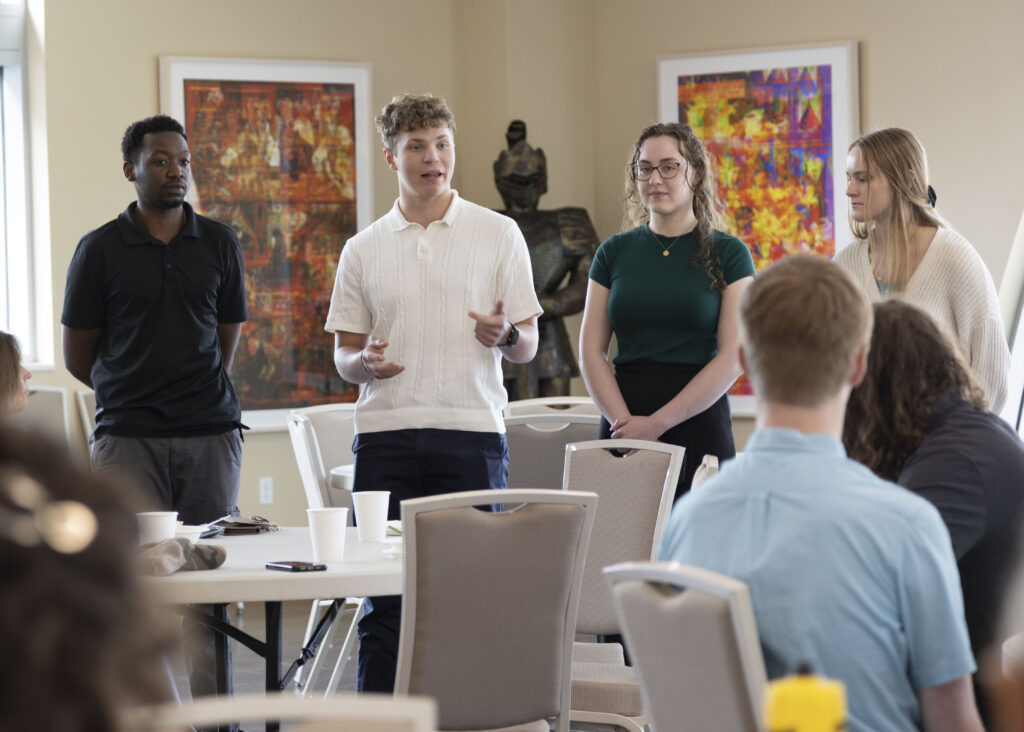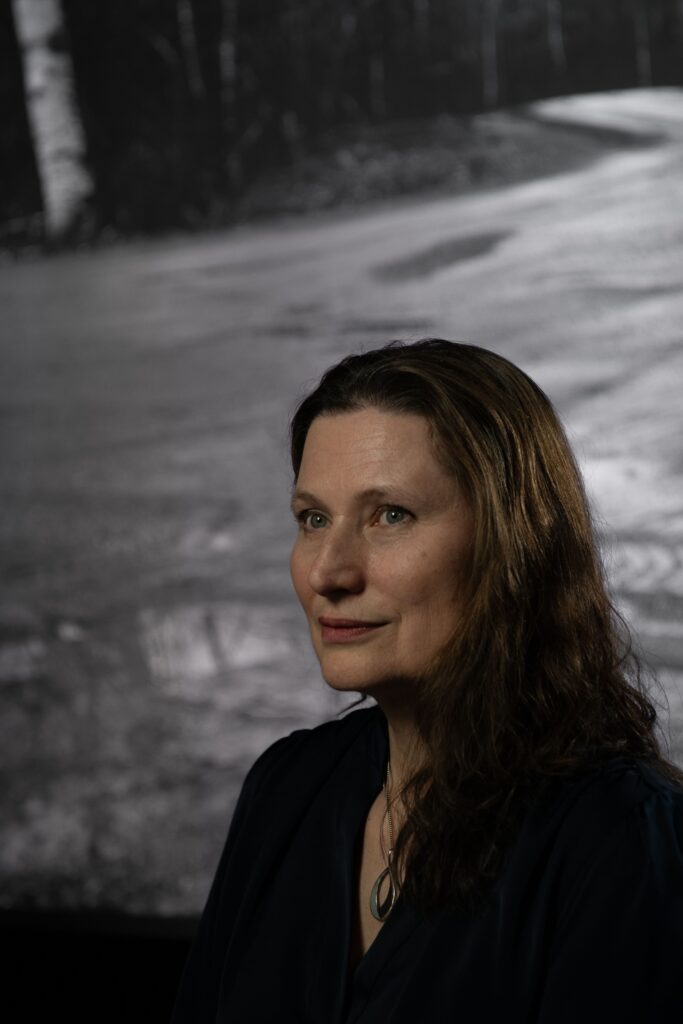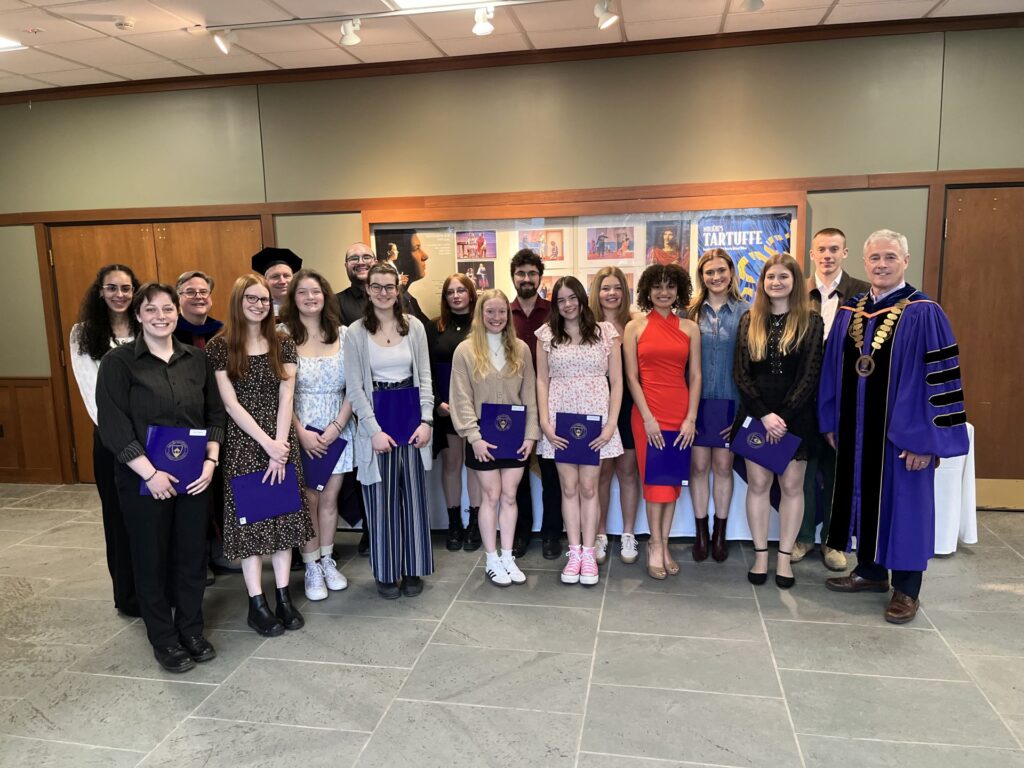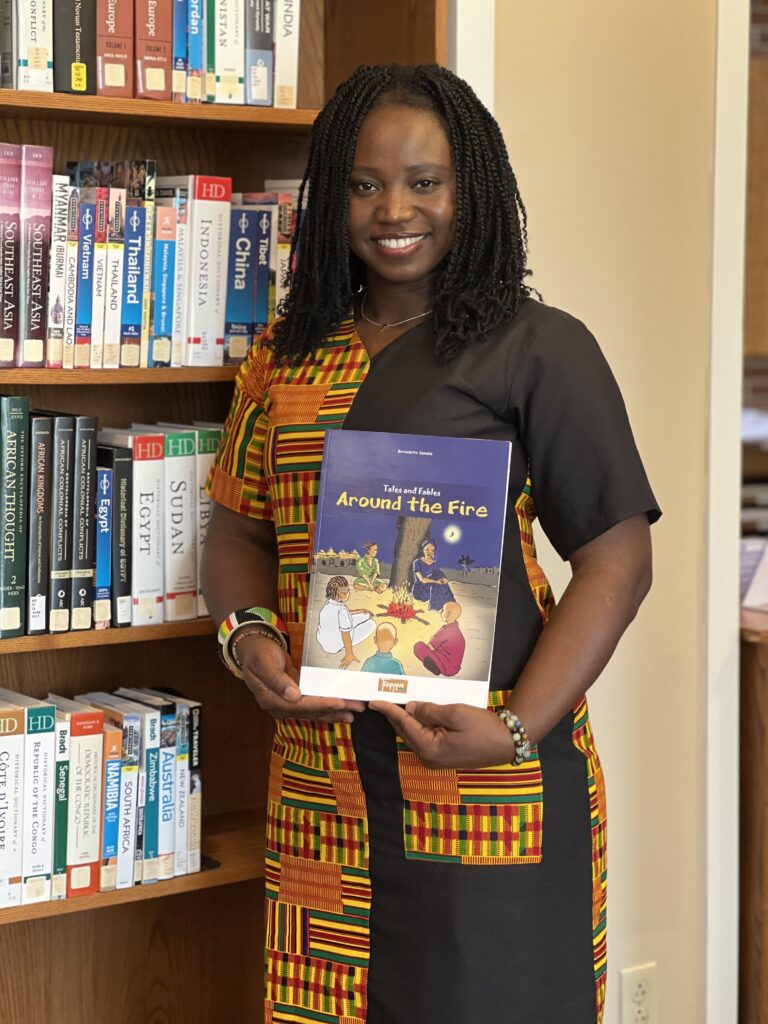New Ways Ministry visits Saint Michael’s College to share message of LGBTQ inclusion and love
The Catholic Church has a fraught history with members of the LGBTQ community – but Catholic ministries, like New Ways Ministry, are trying to change that.
Frank DeBernardo, one of the founders of New Ways Ministry, recently spoke at Saint Michael’s College about the issues that LGBTQ people have faced within the Catholic Church, how Pope Francis has helped change some historical perspectives, and why Catholic teaching calls everyone to welcome and love all people regardless of their identities. His talk on April 10 was sponsored by the Edmundite Center for Peace and Justice and drew a crowd of priests, students, faculty and staff members.
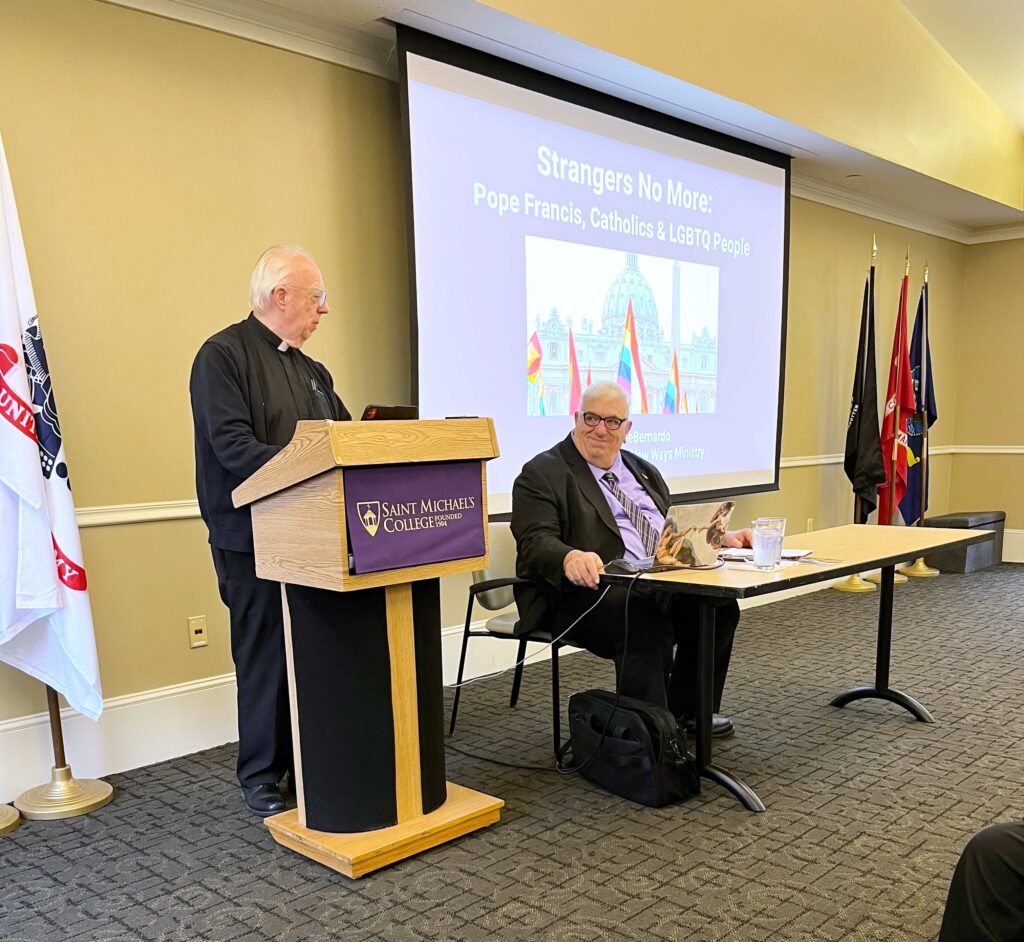
Fr. David Theroux, S.S.E., Director of the Edmundite Center for Peace and Justice, left, introduces Frank DeBernardo of New Ways Ministry during an event on April 10, 2024. (Photo by Elizabeth Murray/Saint Michael’s College)
Since its founding in 1977, New Ways Ministry’s mission has centered around Catholic outreach “that educates and advocates for equity, inclusion, and justice for LGBTQ+ persons, equipping leaders to build bridges of dialogue within the Church and civil society,” according to the ministry’s website. After joining the ministry in the 1990s, DeBernardo identified the Society of Saint Edmund, which founded Saint Michael’s College, as one of the Catholic orders and groups that would be supportive of New Ways Ministry’s cause.
“When we talk about LGBTQ issues in the Catholic Church, it is easy to get sidetracked into issues of sexual ethics, human anthropology, church doctrine, sacramental theology, canon law, and many other abstract ways of describing who LGBTQ people are and what is the meaning and purpose of their identities and relationships,” DeBernardo said. “But I want to stress today that, as Catholics, when we talk about LGBTQ+ people, we are first and foremost talking about love.”
According to DeBernardo, acceptance of LGBTQ people has always been included in Catholic social justice teaching. This teaching, he said, has been suppressed for too long. However, Pope Francis has embraced this teaching in many of his recent statements about LGBTQ people, including by adding another element: hospitality.
“Hospitality is at the very heart of the Gospel, evident in Jesus’ table ministry and his frequent invitations to all people to participate in his way of life,” DeBernardo said. “This disposition to welcome has been realized by Christians in each age, most recently in the encyclical Fratelli Tutti, in which Pope Francis regards hospitality as a ‘sacred duty.’ Non-discrimination protections are essential to living out hospitality in the way Jesus modeled.”
Welcoming LGBTQ people into the Catholic Church can also help the community that already exists in the church to evolve, growing together in knowledge and understanding, DeBernardo said. “Catholics are recognizing that this welcome is not just an obligation out of our commitment to social justice,” DeBernardo said, but that it also opens the community to the spiritual gifts that LGBTQ people bring to a parish.
“Perhaps most importantly, because LGBTQ people have often had to struggle to see the goodness in their sexuality and gender identity, they can teach all Catholics to do the same,” DeBernardo said.
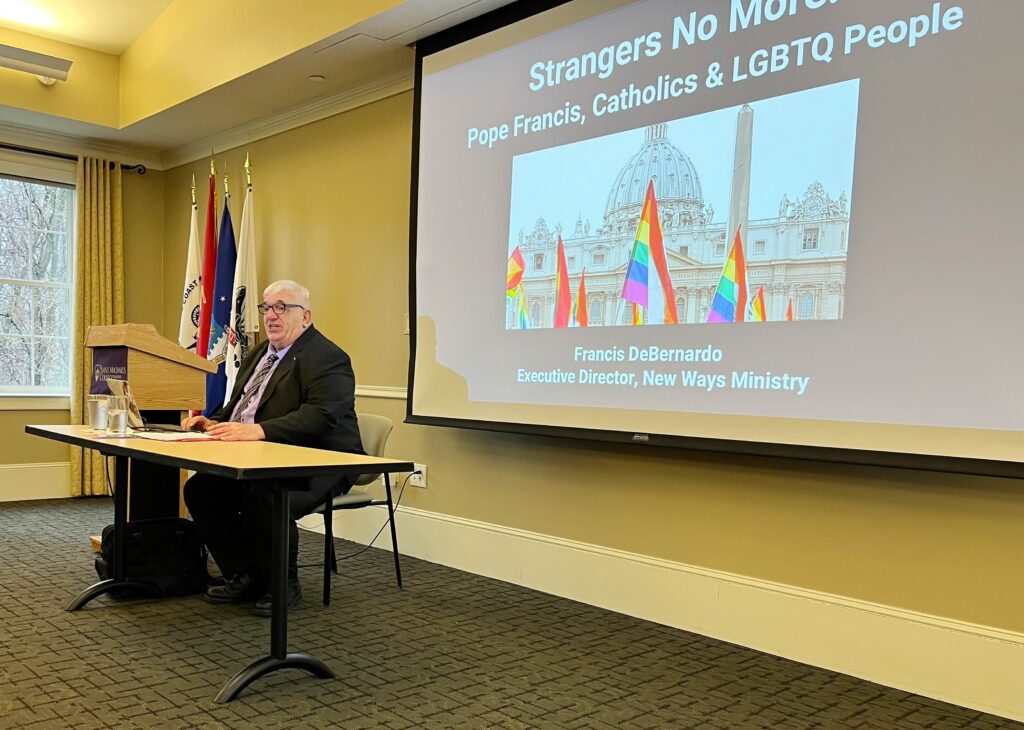
Frank DeBernardo giving his talk on April 10. (Photo by Elizabeth Murray/Saint Michael’s College)
The Catholic Church still has progress to make despite Pope Francis’ statements toward progress. A recent publication by the Vatican Dignitas Infinita affirmed that the human dignity of gay and lesbian people must be protected while also condemning “gender theory” and certain medical interventions that transgender people may seek. DeBernardo criticized those latter parts of the publication, saying they weren’t clearly defined and that it appeared the Vatican failed to speak to any transgender person before forming an opinion.
In a statement released after the publication of Dignitas Infinita, DeBernardo wrote that the publication “fails terribly by offering transgender and nonbinary people not infinite, but limited human dignity. While it lays out a wonderful rationale for why each human being, regardless of condition in life, must be respected, honored, and loved, it does not apply this principle to gender-diverse people.”
In his remarks at Saint Michael’s, DeBernardo said that gender remains a “much bigger challenge for the Vatican, perhaps because any concessions to new understandings of gender may be a threat to the leadership of a church which uses gender as a requirement for so many of its authoritative offices and ministries.”
While much progress is yet to be made, DeBernardo and his ministry seek to continue educating people on LGBTQ issues and acceptance in the Catholic Church.
“No evidence exists in Scripture for LGBTQ people not to be considered full human beings deserving of social inclusion and protection,” DeBernardo said. “No quotes about sexual orientation or gender identity are attributed to Jesus in any of the four gospel accounts. However, those same gospels are filled with directions and demands that Jesus’ followers love one another, welcome the outcast, foreigner, and oppressed, and reach out to all, even those outside of one’s own religious traditions.”
More information about New Ways Ministry can be found at newwaysministry.org.

